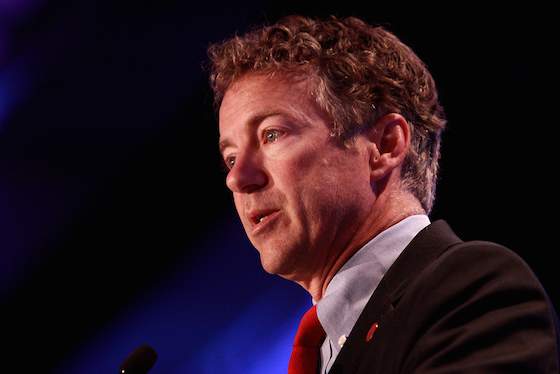- MENU
- HOME
- SEARCH
- WORLD
- MAIN
- AFRICA
- ASIA
- BALKANS
- EUROPE
- LATIN AMERICA
- MIDDLE EAST
- United Kingdom
- United States
- Argentina
- Australia
- Austria
- Benelux
- Brazil
- Canada
- China
- France
- Germany
- Greece
- Hungary
- India
- Indonesia
- Ireland
- Israel
- Italy
- Japan
- Korea
- Mexico
- New Zealand
- Pakistan
- Philippines
- Poland
- Russia
- South Africa
- Spain
- Taiwan
- Turkey
- USA
- BUSINESS
- WEALTH
- STOCKS
- TECH
- HEALTH
- LIFESTYLE
- ENTERTAINMENT
- SPORTS
- RSS
- iHaveNet.com: Politics

GOP Hopefuls Seek Inner-City Education
by Clarence Page
Has Sen. Rand Paul flip-flopped on the issue of voter ID requirements?
A year ago at historically black
But in recent Chicago and Memphis interviews, he's changed his tone, if not his tune. He doesn't oppose voter ID requirements, he says, but he wants his party to stop talking about them.
"Everybody's gone completely crazy on this voter ID thing," he told
Mainly black people, that is, among other minorities and advocates for low-income voters who tend to be burdened most by such laws. Paul earlier made similar comments in an appearance with former senior Obama advisor David Axelrod at the
What's going on? Paul's people say his views have not changed but, in my view, his sensitivity to how much minority voters hate voter ID laws and other issues has vastly improved.
I mocked his earnest but woefully unsuccessful racial outreach visit to Howard early last year as "whitesplaining," a popular term in some circles for a white person's act of explaining sociopolitical events and history to audiences of color as though they were ignorant children. Not the best way to build cultural bridges.
Since then, Sen. Paul has done a smart thing: He embarked on a listening tour. He has visited black, Hispanic and low-income communities across the nation. He has met with clergy and other community leaders to learn about real problems and problem solvers beyond the libertarian theories with which he famously schooled himself, like his famous father former Rep. Ron Paul, a Texas Republican.
And he's not alone among presidential hopefuls on such a cross-cultural quest. I recently sat down with House Budget chairman Paul Ryan of Wisconsin in his
As a self-described policy wonk and former aide to Rep. Jack Kemp, a famously popular white conservative in minority communities, Ryan candidly described a wish to carry on in Kemp's tradition, even as he aspires to gain Kemp's ease at communicating with diverse communities.
"Look, I was born in 1970 in Wisconsin," he told me. "What I'm learning is that what you're saying and what people are hearing are not always the same thing."
Yes, he was referring to his infamous sound bite on a radio show that triggered charges that Ryan was blowing a racial dog whistle to far-right whites: "We have got this tailspin of culture, in our inner cities in particular," he said during the radio discussion of poverty programs, "of men not working and just generations of men not even thinking about working or learning the value and the culture of work...."
Coming from a leading white Republican, his "inner city" reference was heard by critics as a clumsy critique of black culture.
"I think of everybody -- Hispanics, Asians, whites. That's the inner city I know," he told me. Ryan offered examples of programs in his home state and elsewhere that try to "reconnect" people from various income and ethnic groups together through religious and other civic organizations to fight poverty with social, educational and economic opportunities.
"The point I was trying to make," he said, "is that we need to reintegrate people (from diverse communities) to make a difference."
Fair enough. One can argue, as I often do, as to whether Ryan's or Paul's budgetary and legislative ideas will help that reconnection or make it worse. Same with voter ID laws. But disagreements are where honest debates should begin, not end.
Ryan's and Paul's media stumbles illustrate how hard it is for any productive policy debate to survive in today's racially and emotionally charged political atmosphere. Issues on which we disagree should not be allowed to block progress in those areas on which we agree.
Ryan and Paul appear to be trying to meet that challenge. The big unanswered question is how far their conservative base will let them do it.
Available at Amazon.com:
Six Amendments: How and Why We Should Change the Constitution
Receive our political analysis by email by subscribing here
AMERICAN POLITICS
WORLD | AFRICA | ASIA | EUROPE | LATIN AMERICA | MIDDLE EAST | UNITED STATES | ECONOMICS | EDUCATION | ENVIRONMENT | FOREIGN POLICY | POLITICS
Article: Copyright ©, Tribune Content Agency
GOP Hopefuls Seek Inner-City Education